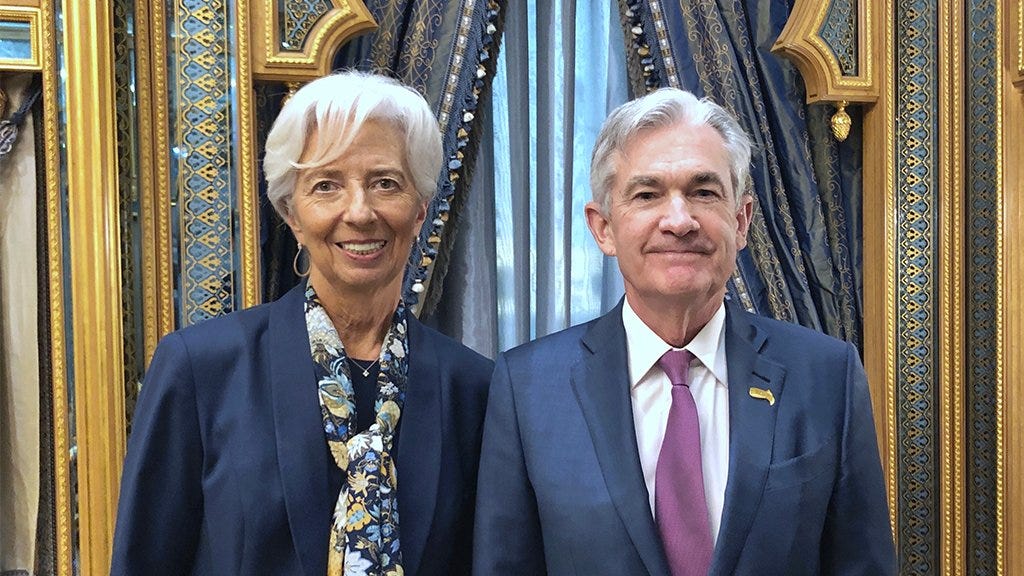Having Failed to Implement a Preventive Monetary Policy, the Fed Must Go Into Punitive Mode.
We will have to pay for the mistakes of the central bankers.
In the past, monetary policy did not hesitate to act preventively. To combat threatening inflation, for example, the central bank would raise interest rates to nip any inflationary risk in the bud. The monetary gorgon was able to scare off inflation just by frowning.
But today, contemporary monetary policy is contemplative. It prefers to see rather than predict. Some even claim that the central bank 2.0 never acts against the interest of its client. and its client is us. Unless the central bank believes that its client is threatened. Then it may have to take decisions that are not in the best interest of the customer. Here we are.
The Fed and the ECB can no longer look the other way. Inflation is too high and has been for too long. And current geopolitical events are not likely to calm prices. So central banks have to roll up their sleeves and get their hands dirty. This is where central bankers cringe as if they were pointing to three major problems:
Problem 1: It is forbidden to prohibit prices from rising
You can't stop inflation just by pushing down on prices to keep them from rising. In any case, central bankers don't know how to do that. Central banks can't stop prices from rising, just because they don't want them to. On the other hand, they can encourage prices not to go up...
For example, the central bank doesn't say “prices stop going up!”. It says “I put very high key rates”. If you practice a little, you will understand the allusion. High-interest rates do not make you want to use your money to consume, but to save. High-interest rates do not make you want to borrow money either, because you have to pay back more interest. And so all of this creates conditions for wiser inflation. So much for the theory.
So the central bank does not formally prohibit prices from rising, but when it raises interest rates, everyone gets the message. In the same way, when Adam asks “Is Nathan still single?”, Syara replies “I only know that he has booked a trip for two to the Maldives ...”. The art of saying things without saying them. It may or may not work.
Problem 2: Central banks cannot act only to stop inflation
The central bank would like to curb inflation without curbing everything else. But that is impossible because it knows that to calm inflation, it will have to stun Homo economicus by raising interest rates, reducing the size of its balance sheet, and generally making the monetary policy less accommodating.
The central bank would like to shake up inflation without stopping the economic planet from turning. But the central bank can't whip the top, the art of whipping the top to keep it moving.
The central bank can't just punish inflation. It must punish everyone. There is no such thing as retributive justice. Everyone must be punished for the fault of one: inflation. Consumers, businesses, financial markets, and even governments will have to share in the punishment.
Problem 3: Supply shock
There is a solution to rising prices that works every time. You deprive the consumer of purchasing power. You are sure that by not going out to consume, he will not make prices go up anymore. However, just because they don't go out to consume doesn't mean they won't be hungry. A monetary policy aimed at fighting an inflationary shock is therefore a bit perverse.
This policy even becomes sadistic if one adheres to the thesis of an inflationary supply shock rather than a demand shock.
The supply shock is when there is a shortage because there are fewer goods in the stores, but there are still as many people to consume them: prices go up even though people are not richer. If you then raise rates, it's a double whammy for the consumer. There is then a major risk of practicing a restrictive monetary policy. The healing central banker can then turn into a mortician, and then become stubborn: this is a case of cacothanasia.
A demand shock is different because then the consumer consumes too much. It is his fault that prices are too high. In this case, if the central bank raises interest rates, it will be said to be practicing a public health policy by reasoning with the exuberant consumer. Some great thinkers have thought a lot, and think that American inflation is mostly a story of demand shock (the Biden checks). Yet, if we look hard enough, we still don't see an exuberant GDP or an overheated economy...




